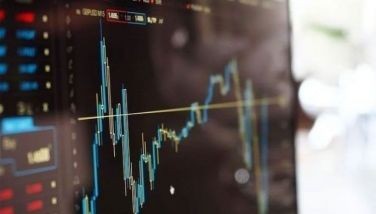War on cyber security breaches

The rather shameful attack on Bangladesh’s central bank system that led to the illegal transfer of $81 million and the eventual disappearance into thin air of most of the money only underscores what many cyber security analysts and experts have been saying for some time now.
It’s worrying to the point that you ask: If criminals can do this to a central bank, no matter how small the country, who else could be vulnerable? It seems the war against cyber criminals is getting tougher by the day despite all the millions of dollars spent on erecting fire walls and hiring consultants to monitor suspicious attacks.
In fact, almost all of the big cyber security companies at end of 2015 had come up with very scary predictions of just how vulnerable online life is — and this is just not about banking transactions, but even our personal lives on the popular social media sites like Facebook, Twitter and Instagram.
Cyber criminals are growing in number, and getting bolder too. And the worst news is that our cyber security boys, those paid to protect our money and personal information, are finding it difficult to keep ahead of the heists that are sprung on them at a more frequent pace.
Feeling paranoid
Does that make you feel paranoid? You should be, especially since the big cyber security companies themselves admit they are losing the war even with all of the intelligence systems they have put up in recent years.
Today’s boardrooms are increasingly recognizing that the chief intelligence security officer no longer belongs to the technical experts’ pool, but as part of an elite group of business risk leaders that CEOs keep close to their hearts.
Considering that cyber attacks have infiltrated big mainframes of industrial and even web-based retailing companies, easily anything that uses the Internet nowadays without the right kind of protection will find itself open to sabotage.
From big companies (a power plant, an air traffic control tower and a retailing firm, to name a few) to the Internet of smaller things (vehicles, home security systems, mobile banking), everything now seems fair game to cyber criminals.
Even the formerly fail-proof security walls on Apple devices seem to have been breached in several instances last year — first when several show business personalities found their personal social network accounts hacked, and when the United States’ FBI was able to unlock a terrorist’s iPhone.
Worse, these masterminds of cyber evil are even suspected of working nowadays with terrorist groups. Huge sums of money are paid to steal more money from the system, and then use these stolen funds to finance terrorist activities.
Trends
New risks are emerging nowadays as more businesses, governments and people rely on the Internet to get about with their daily tasks. As the data being stored on mainframes get richer, the temptation by cyber criminals to maneuver classified information to their own advantage becomes greater.
Cyber security experts and bloggers predict that data stealing and ransom threats will be used for bigger gains. For example, by successfully breaching a power plant’s control systems, criminals will no longer be content with just inducing blackouts, but will use this as a chance to extort money.
This will be the same for other media that use the Internet. Simply, extortion will play a key role in cyber crimes, from threats to expose personal information to unlocking a car’s mobility to sabotaging Internet-based businesses (like dating services).
The growing prevalence of malwares that induce unwanted advertisements on smart devices will see the birth of more ad blockers. This may be good for consumers, but not for the advertising industry which has just found new ground for fresh revenue channels.
Payment systems using smartphones are seen to be exposed to bigger threats, especially as cyber criminals have become more adept at harvesting personal information from banking and retailing systems.
This is compounded by the fact that consumers continue to observe poor security measures in disclosing their banking and other personal transaction details, and still fall prey to scams and dubious chain letters, and continue clicking malicious links.
What can be done?
Clearly, not just on a personal level but for world security (and peace), the wired world needs better protection from the growing army of cyber criminals and others who depend on them to spew terrorism and other forms of crime.
Certainly, better laws that will support super cyber police and investigative agencies, plus more teeth in going after criminals are needed. The same goes for international cooperation of countries in fortifying the cyber walls of defense and prosecuting those found guilty.
Companies need to be more aware of the importance of installing updated systems that will be able to monitor in real time breaches in their security systems. Cyber criminal syndicates are becoming more adept at installing worms and waiting, sometimes for months, for the right time to launch their attack.
The cyber security industry needs to be more proactive in getting ahead of criminals. Block-chain encryption and other forms of better protection are needed to be able to secure information that we consumers entrust banks and other online media.
Just as there are many program wizards that allow their services to be bought and utilized for criminal activities, there are also those equally, if not better techies that will be able to fight such crimes.
Consumers beware
Finally, we consumers need to be more aware of the dangers posed by dealing with vendors that do not strictly observe security precautions and measures. Similarly, increased awareness means adherence to safety protocols, even such basic rules as keeping strong passwords and observing log-out procedures.
The world today can never go back to the days when sending a letter meant going to the post office and withdrawing money needed a trip to the bank. We cannot imagine now a world without emails or not checking our favorite online news.
That being the case, we must work hard to make sure we can live in this new wired world without compromising our safety.
Facebook and Twitter
We are actively using two social networking websites to reach out more often and even interact with and engage our readers, friends and colleagues in the various areas of interest that I tackle in my column. Please like us at www.facebook.com and follow us at www.twitter.com/ReyGamboa.
Should you wish to share any insights, write me at Link Edge, 25th Floor, 139 Corporate Center, Valero Street, Salcedo Village, 1227 Makati City. Or e-mail me at [email protected]. For a compilation of previous articles, visit www.BizlinksPhilippines.net.
- Latest
- Trending































